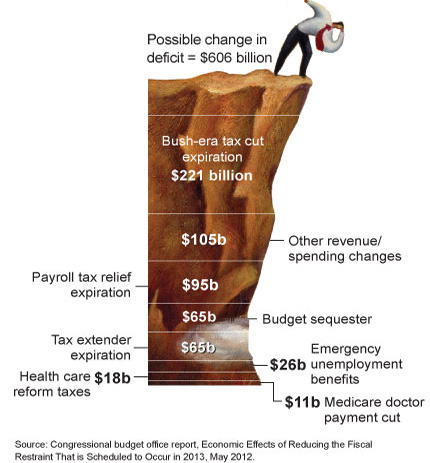 |
| Travel the world, meet new people and kill them |
The big one is Iran. The economic pressure from the sanctions is increasing, and the Iranians are going to have to try to formulate a strategy to get out from under the most onerous of them. And virtually any strategy is going to involve raising the stakes, and that will always carry a risk of uncontrolled escalation. Israel has also invented an imaginary red line determined by the amount of 20% enriched Uranium the Iranians stockpile. Never mind that this is FAR from weapons grade, Netanyahu has drawn this line, which is expected to be reached, or crossed, in June. Now, as I have said before, I don't believe Bibi and his advisers actually WANT to launch an attack on Iran. They are much better off politically and diplomatically with Iran as their own personal boogeyman, that designated 'existential threat' used to justify otherwise intolerable political, military and economic policies. But things are getting very real for the Iranian regime, and with all the rhetoric a conflict seems almost inevitable.
Another big one is Iraq. Iraq is both imploding and exploding in a variety of ways. PM Malkiki's heavy handed political consolidation, including the elimination of Vice President Hashimi and the marginalization of the other Sunnis in the government has resulted in intense friction with other groups. There is a standoff with the Kurds over oil contracts and the status of Kirkuk, and a budding alliance between the Iraqi Kurds, the Syrian opposition and even, most surprisingly, Turkey. In the meantime, the institutionalized mis-treatment of the Sunni population has brought tens of thousands into the street in protests this week, closing the main road north. The last time there was a civil war between the Sunnis and the Shiite government, it took the might of the entire US armed forces to put it down. If Maliki finds himself fighting not one, but two civil wars, one in Anbar and one in Kurdistan, he's in for a rough time. But it will be bloody, and like everything else in that blighted land, carries the risk of regional escalation.
Then of course there's Mali. The Tuareg separatists took the northern half of the country for their homeland, and the Jihadi wackaloons took it from them. Now they're doing what Jihadi wackaloons always do with their own country, running around beheading and stoning and mutilating people, destroying historic statuary and basically making everybody around them miserable. So behind French demands, the UN has authorized a force gathered from regional African states to invade Northern Mali and return it to the control of the Government in Bamako. Of course, the fact that the government in Bamako has changed four times in the last year is problematic to this undertaking, as is the questionable willingness of Mali's neighbors to contribute troops, but sometime this year we can expect to see a decent little local war in the Sahara.
Then there's a couple of long-shots, not really likely to become shooting wars in 2013, but worth noting because of their massive potential global consequences. First is a few disputed uninhabited rocky islands in the East and South China Seas, rich in resources and variously claimed by China, Taiwan, Vietnam, Japan and the Philippines. China is the dominant military power in the region, but under a variety of treaties, agreements and commitments the United States is almost certain to get involved if things turn hot. It's interesting that much of the Chinese military developments of the last decade seem specifically designed to control those bodies of water, especially to keep the American Carrier Groups out. Then there's the real black swan event, the eruption of a revolution or civil war in China. China is a huge, virtually ungovernable nation with a wildly diverse population, a vast interior full of poor, restless people and tremendous corruption preserving a terribly un-equal system. The current national government is opaque and inefficient, not at all suited to the demands of governing the largest nation on earth in the 21st century. It is a veritable certainty that China will explode at some point - the question is whether that will happen in 2013. While it seems unlikely, we've seen in the events of the Arab Spring that these things can go from isolated demonstrations to full-blown revolution with startling velocity.
Beyond that, there are a lot of hot spots that, while not necessarily poised for imminent warfare, bear watching closely this year. They include Mexico, Venezuela after the passing of Chavez, Nigeria and our old friend Egypt, which may only be getting started on the path to chaos. There is also the crisis that hasn't begun, the near-certainty of somebody doing something stupid in some corner of the world, with larger nations rushing in to stake their claim on their fair share of the killing. We live in a time of endless warfare, and when no conflicts ever end, the violence only grows and spreads.
...
















